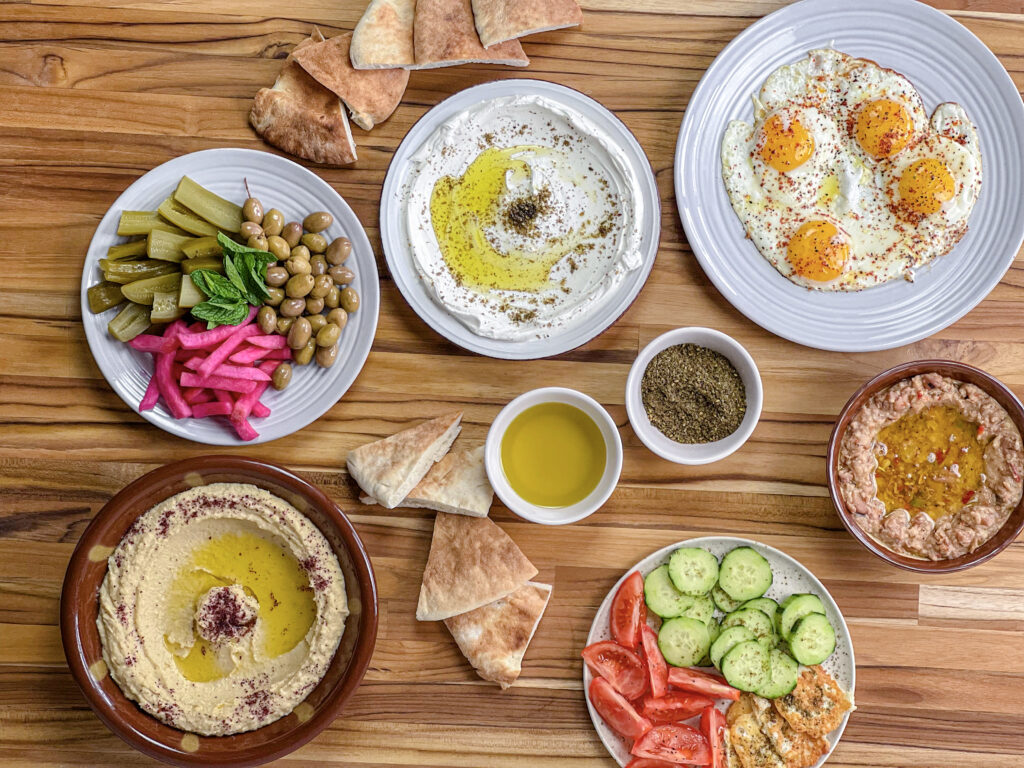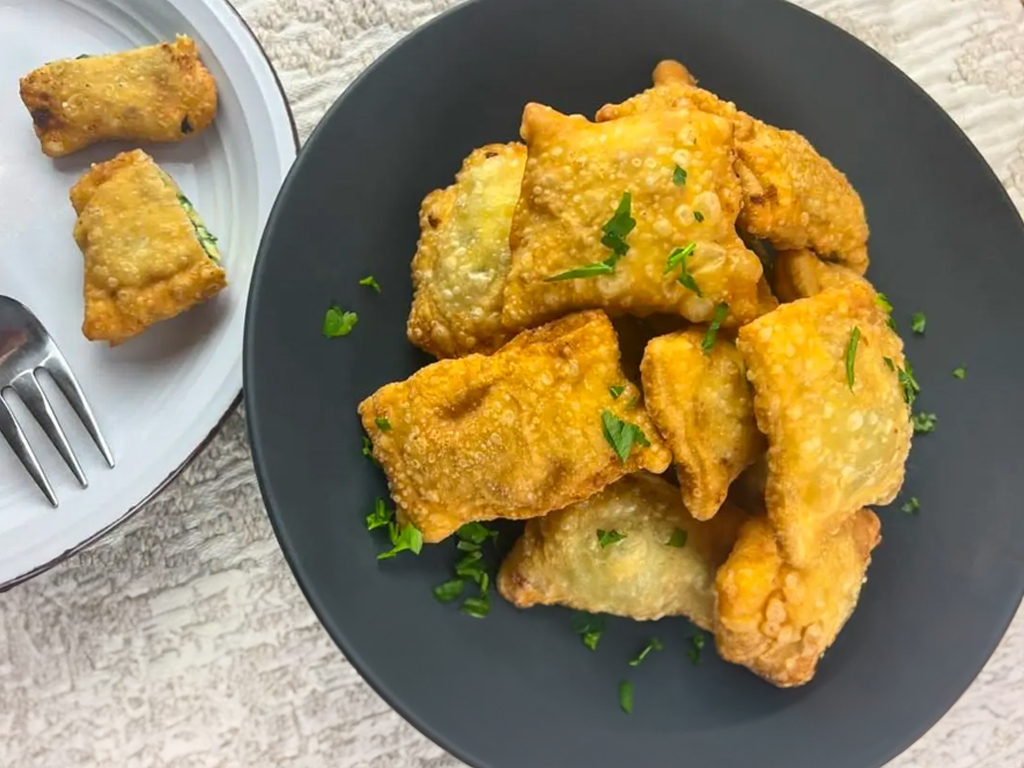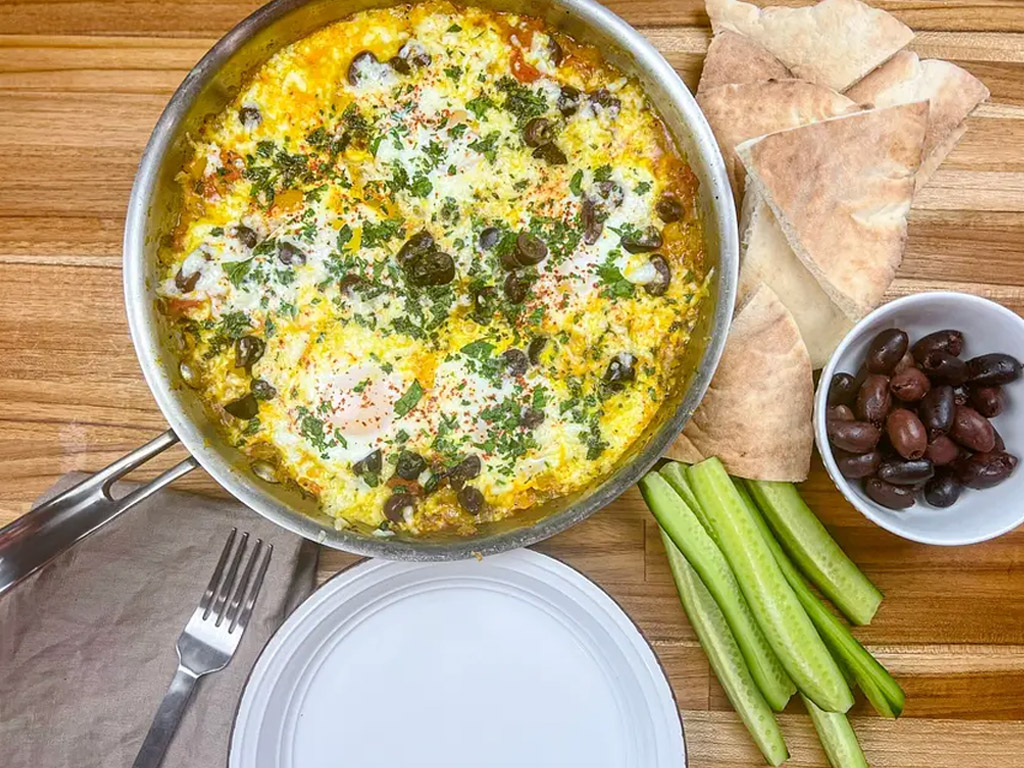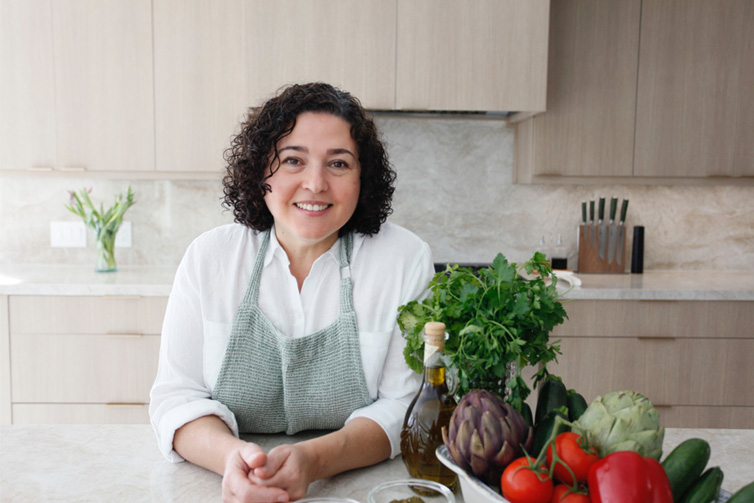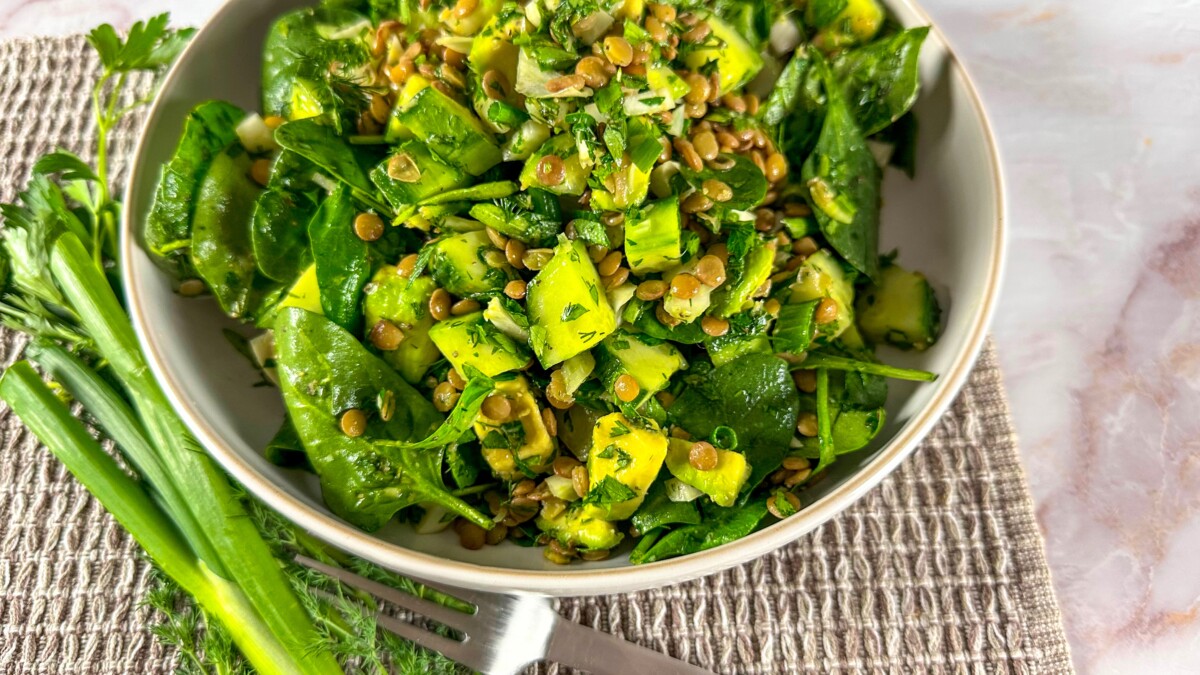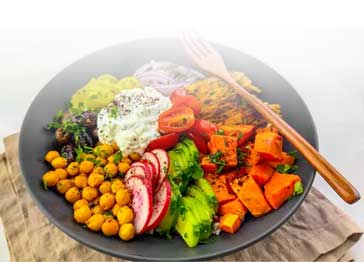Welcome to the vibrant world of Mediterranean cuisine, where food is more than just sustenance — it’s a reflection of history, heritage, and a deeply rooted lifestyle. Influenced by centuries of cultural exchange and shaped by the lands and waters surrounding the Mediterranean Sea, this cuisine emphasizes fresh ingredients, simple techniques, and shared meals.
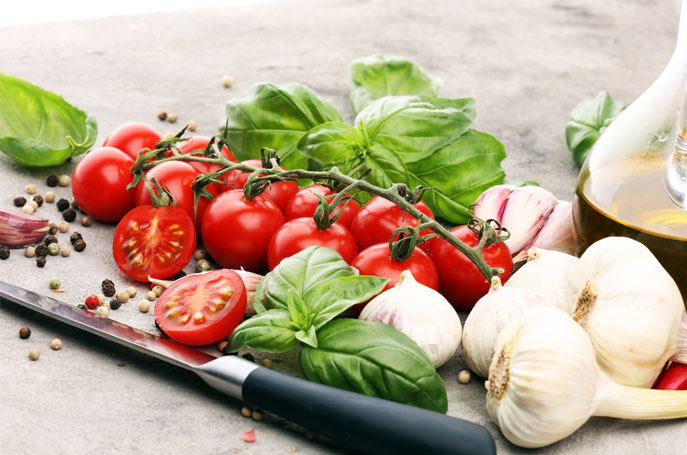
Last year, I had the incredible opportunity to spend three months traveling through 11 countries and 42 cities across the Mediterranean. From bustling souks in Marrakech to coastal cafés in Amalfi and local markets in Rhodes, I immersed myself in the region’s food culture — cooking with locals, visiting farmers’ markets, and taking part in traditional meals. What struck me most was how seamlessly food is woven into daily life. Meals aren’t rushed. Fast food often means something fresh, like grilled corn, roasted chestnuts, shawarma wraps, or sweet fruit cups sold on the street.
In Barcelona, I savored seafood paella made with the morning’s catch. In Florence, pizza was served with homemade tomato sauce and floury dough that had been rising since sunrise. In Rhodes, an eggplant salad danced with local olive oil and herbs. In Marrakech, slow-roasted lamb was infused with spices and tradition. Each bite — whether humble or elaborate — was anchored in freshness, locality, and simplicity.
This guide brings together my decades of experience in the food industry, childhood memories of my grandmother’s kitchen in Jordan, and firsthand lessons from my travels. Whether you’re wondering “What is Mediterranean cuisine?” or seeking to understand its cultural richness, you’re about to embark on a flavorful journey.
“You learn a lot about someone when you share a meal together.”
Anthony Bourdain
What is Considered Mediterranean Food
Before we embark on this delicious journey, let’s explore the heart of what defines Mediterranean cuisine. At its core, Mediterranean food is a vibrant mosaic of culinary traditions from the regions bordering the Mediterranean Sea — spanning Southern Europe (like Italy, Spain, and Greece), North Africa (including Morocco, Tunisia, and Egypt), the Middle East (such as Lebanon, syria and Turkey), and the Balkans. Though each region has its own culinary personality, their shared geography, climate, and centuries of trade and cultural exchange have deeply interwoven their foodways.
What unites these diverse cuisines is a foundation built on fresh, seasonal, and wholesome ingredients. Olive oil — often called “liquid gold” — has been a staple since ancient Greece, used generously for cooking, dressing, and preserving. Fresh-caught seafood is central in coastal areas, while vegetables like tomatoes, eggplants, zucchini, and bell peppers are sun-ripened to bursting flavor. Whole grains such as bulgur, farro, and couscous are foundational in many traditional dishes, and fragrant herbs and spices like oregano, mint, rosemary, cumin, and sumac elevate even the simplest meals.
barbajuan – Easy Appetizer Everyone Will Love
Authentic Croatian Fish Stew Brodet Recipe
Mediterranean Cuisine: Cooking Techniques
Mediterranean cuisine is celebrated not only for its wholesome ingredients but also for its simple, time-honored cooking techniques that enhance the natural flavors of the food. These methods, passed down through generations, reflect a deep respect for both the ingredient and the process.
While grilling, roasting, and sautéing are well-known staples of the Mediterranean kitchen, several other traditional methods deserve attention:
-
Braising: Slow-cooking meats or vegetables in a covered pot with liquid helps develop deep, rich flavors and tenderness — think of a Moroccan lamb tagine or Turkish eggplant stew.
-
Baking: Used for everything from seafood to vegetable casseroles, baking intensifies sweetness and preserves the integrity of the ingredients. Dishes like Greek spanakopita or Provencal ratatouille showcase this beautifully.
-
Steaming: A gentler approach, steaming helps retain nutrients and fresh flavor — ideal for delicate fish, greens, or even artichokes.
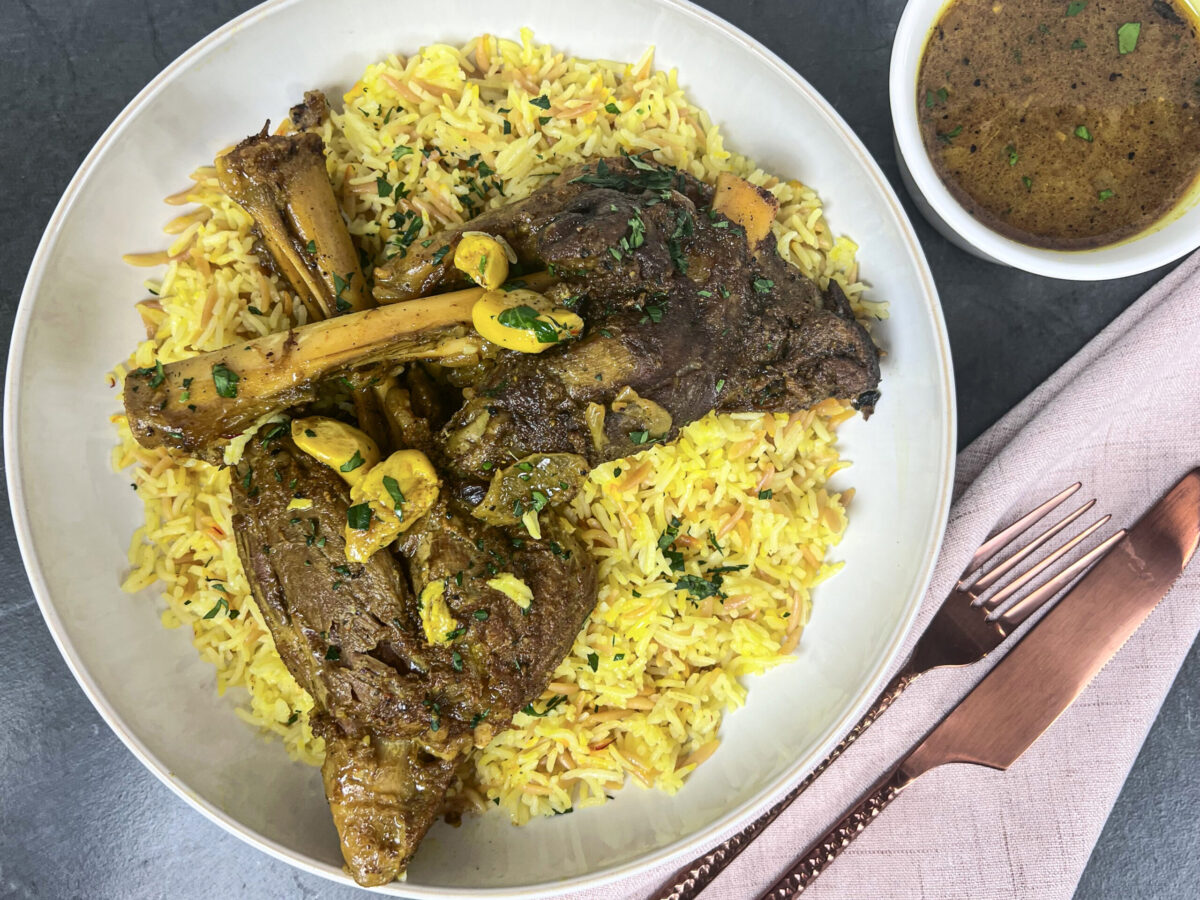
Savor the richness of perfectly slow-cooked amb shanks atop a bed of delicate Lebanese rice.
One technique particularly tied to Mediterranean food culture is slow cooking. This isn’t just a method — it’s a reflection of the Mediterranean way of life: patient, intentional, and rooted in tradition. From slow-roasted lamb in North Africa to tomato-based stews simmered for hours in Italy, the use of time in cooking often defines the depth of flavor. These dishes are meant to be savored, not rushed.
Want to dive deeper? Check out my full article on 8 Mediterranean cooking techniques for more methods, regional variations, and recipe inspiration.
What makes these techniques truly special is their versatility. Whether you’re cooking seafood, hearty meats, or plant-based dishes, these methods naturally bring out the richness and freshness of Mediterranean ingredients, without the need for heavy sauces or complicated steps.
Benefits of the Mediterranean Diet
The Mediterranean diet is more than just a way of eating — it’s a lifestyle deeply rooted in the traditions of the Mediterranean region, where people have long enjoyed longer lifespans and lower rates of chronic illness. Backed by decades of nutritional research, this way of eating is celebrated for its remarkable health benefits, delicious flavors, and sustainable approach to food.
A Heart-Healthy Way of Eating
Numerous studies have shown that the Mediterranean diet can reduce the risk of heart disease and stroke. It emphasizes healthy fats like extra virgin olive oil, along with omega-3-rich seafood, leafy greens, legumes, and whole grains — all of which support cardiovascular health.
Brain Health and Cognitive Function
Research also links the Mediterranean diet to improved brain health, with benefits including a lower risk of cognitive decline and conditions such as Alzheimer’s disease. Nutrients from colorful vegetables, fish, and healthy oils work together to support memory, focus, and overall mental clarity.
Eating for Energy and Enjoyment
Unlike restrictive fad diets, the Mediterranean diet promotes natural portion control and satisfaction through nutrient-dense foods. Whole foods, healthy fats, and fiber-rich meals help you feel full longer, making it easier to maintain a healthy weight over time.
Tips to Embrace the Mediterranean Lifestyle
Incorporating Mediterranean principles into your daily life doesn’t require perfection — it’s about small, meaningful choices:
-
Prioritize whole, unprocessed foods: Load your plate with fruits, vegetables, legumes, whole grains, nuts, and seeds.
-
Enjoy lean proteins: Favor fish and poultry over red meat, and explore plant-based proteins like chickpeas and lentils.
-
Use olive oil generously: Make it your main cooking fat — it’s rich in antioxidants and heart-healthy monounsaturated fats.
-
Practice mindful eating: Savor your food, eat slowly, and enjoy meals with loved ones — a core part of Mediterranean culture.
-
Treats in moderation: Sweets, red meat, and highly processed foods aren’t forbidden, but they’re enjoyed occasionally, not daily.
Ultimately, the benefits of the Mediterranean diet go far beyond nutrition — they reflect a balanced, joyful way of living. It’s about slowing down, choosing quality ingredients, and connecting with others over shared meals.
A Personal Invitation from Rana
Mediterranean cuisine is more than just food — it’s a reflection of culture, connection, and memory. For me, it’s deeply personal. It brings back the aroma of fresh bread in my grandmother’s kitchen, the joy of slow meals shared with family, and the vibrant colors of markets I’ve explored across 11 Mediterranean countries.
Through Rana’s Recipes, I’m honored to share this tradition with you. My blog is a growing collection of authentic, approachable Mediterranean recipes, inspired by years in the food industry and firsthand experiences with local cooks, farmers, and families.
Whether you’re preparing grilled lamb skewers, a zesty eggplant salad, or a seafood paella, these dishes are designed to bring the Mediterranean lifestyle into your home — one flavorful, nourishing bite at a time.
Ready to begin?
Visit the Mediterranean Diet page to find wholesome, family-friendly recipes that turn everyday meals into joyful celebrations.
Let’s cook, connect, and celebrate together.
Bon appétit — or as we say in Arabic, Sahtain!


